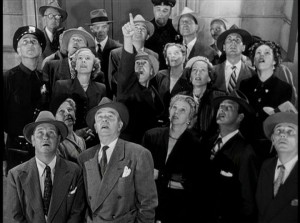The Power of Social Validation
 We see it everywhere: 146 tweets, 289 FB likes, 82 five star ratings. And that’s just some of the online examples of how pervasively we value others’ opinions to help us select what to pay attention to in the overwhelming abundance of worldly information.
We see it everywhere: 146 tweets, 289 FB likes, 82 five star ratings. And that’s just some of the online examples of how pervasively we value others’ opinions to help us select what to pay attention to in the overwhelming abundance of worldly information.
“When people are confused or uncertain about what course to take they don’t look inside themselves, for an answer – they look outside…to people just like them. And since it’s hard to see what ‘everybody’s’ doing, we look at symbols, and icons, and heroes who we impute the ‘just like me’ quality to…”
Social psychologist Robert Cialdini is of the world’s leading experts on influence and persuasion. He’s been studying and touting the importance of social validation and other motivating influences for the last two decades. When people are faced with choices, he observes, our social brain looks for guidance to see what others are doing.
One of the classic studies of social proof involves placards in hotel rooms inviting patrons to reuse their towels to reduce the environmental impact of unnecessary washes. When the message simply encouraged people to “help protect the environment,” about 50% with the program. But when the message was changed to include social proof, compliance shot up by 26%.
Please join the hundreds of other guests who’ve stayed in this room and help reduce wash water pollution – Reuse your towels before having us launder them. Thanks!
Size Counts – So Does Similarity
Imagine you’re standing at the corner waiting to cross a busy street. You notice one of the people in the crowd looking up at the sky. Do you follow suit, curious to see what they might have noticed? Perhaps. Now imagine the same scenario and 5 or 6 people suddenly look up. How likely will you be to gaze skyward this time?
About 4 times as likely, according to another study that showed a jump in response from 4% to 18% when more than 5 people provided the social cue to look up. Social proof is most effective when the ‘validators’ are both plentiful and perceived as being similar to us.
Six ways agencies can leverage social proof
- Talk it up – Sales presentations, prospecting calls, and networking events are perfect opportunities to let people know about all the similar businesses and organizations you already insure.
- “A tremendous number of smaller moving & storage companies like yours are really happy with this program since we started offering it.”
- “We handle the insurance for lots and lots of contractors just like you guys.”
- Solicit and share your testimonials – Instead of blabbing about your own expertise, think about all the ways you can leverage the power of social proof by including endorsements and testimonials from appreciative clients in your emails, newsletters, YouTube videos, and on your website.
- Include social media sharing buttons that make it easy for people to share your online blog posts, whitepapers, etc. – thus spreading and expanding social proof for your agency and practice.
- Consider a client satisfaction contest – Ask clients to share stories about how you’ve helped their company and feature the best submissions on your website, blog, and via social media.
- Cultivate client reviews – User reviews on sites like Yelp, LinkedIn, and other social networking sites offer more opportunities for you to gather and share positive social proof. According to Harvard Business Review research, a 1-star increase in Yelp rating leads to 5-9% growth in sales.
- Put your numbers to work – You don’t have to sell “billions and billions” of hamburgers to effectively tell people about your agency’s impressive number of blog subscribers, thousands of businesses or hundreds of social service organizations you’re proud to count as long time clients. What kind of stats could you leverage to build more social validation for the great value you deliver?
However you get the word out — online, in person, print collateral, email newsletters – social proof will increase your marketing clout and help clients and prospects feel good about giving you their business.
Comments
The Power of Social Validation — No Comments
HTML tags allowed in your comment: <a href="" title=""> <abbr title=""> <acronym title=""> <b> <blockquote cite=""> <cite> <code> <del datetime=""> <em> <i> <q cite=""> <s> <strike> <strong>